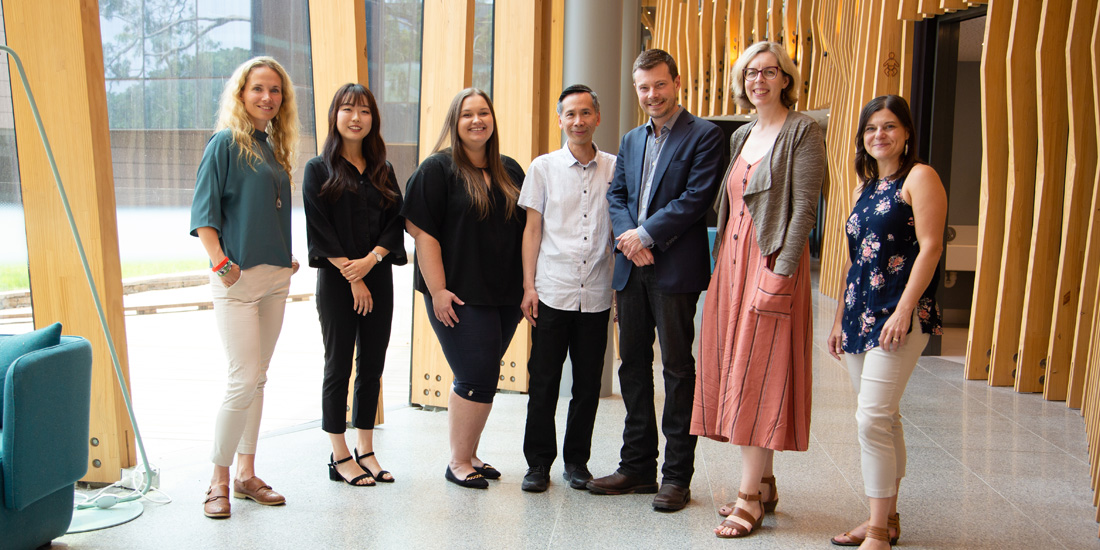 Wellcome Trust grant recipients. Photograph taken before the COVID-19 outbreak in Australia.
Wellcome Trust grant recipients. Photograph taken before the COVID-19 outbreak in Australia.
Orygen researchers have received an AU$2 million Wellcome Trust grant to develop a method for better predicting which help-seeking young people will experience persistent psychotic experiences or may progress to a psychotic disorder.
Professor Barnaby Nelson, head of Orygen’s ultra-high risk for psychosis research program, said the funding would allow his team to build upon research findings published in World Psychiatry last year.
“That preliminary study provided proof of concept – our model of psychosis risk found several connections that hadn't been identified before,” Professor Nelson said.
“Now with the grant we can test the model out on a larger sample to see if it will be useful for prediction purposes.”
Ability to predict which high-risk patients will progress to a psychotic disorder is currently limited.
“Say 100 patients come into our high-risk clinic per year, we know that about 20 per cent of them will go on to develop a psychotic episode over the coming year, but we don't in advance know which 20 per cent,” Professor Nelson said.
But the model that Professor Nelson’s team developed found a new connection between persistent psychotic experiences and the concept of ‘basic self-disturbance’.
“The ‘basic self’ refers to being the subject of experience and action – it's me who's speaking to you right now, I feel present in my body, my senses are all linked together, and this unity persists over time. This is referred to as a sense of ownership and agency,” Professor Nelson explained.
“This is such a ‘built in’ feature of being alive. However, it’s been observed that in some psychotic disorders the basic self seems to be unstable – reflected in a range of experiences such as sense of distance from one’s body and thoughts, feeling anonymous or like a ghost, confusion of boundaries between yourself and other people, and so on.”
To develop the model, Professor Nelson gathered data from a range of sources including clinical interviews, electroencephalogram (EEG) measurements (which track and record brain wave patterns) and computer-based neurocognitive tasks assessing prediction, attention and memory.
With the grant funding Orygen researchers will test the model on three groups of participants: patients at high risk of psychosis (400 participants), patients with non-psychotic mental disorders (100) and healthy control participants (50).
Professor Nelson said he hoped the work would not only result in a clinical tool for prediction, but also help to develop better, more targeted treatments.
“We’re working towards that whole personalised medicine idea. At the moment it's pretty much a one-size-fits-all approach for young people coming into services,” Professor Nelson said.
“Whereas if we can say, ‘okay you're part of that 20 per cent at highest risk and we reckon self-disturbance is a really important feature of what's going on for you’, then we can tailor treatments for that sub-group.”